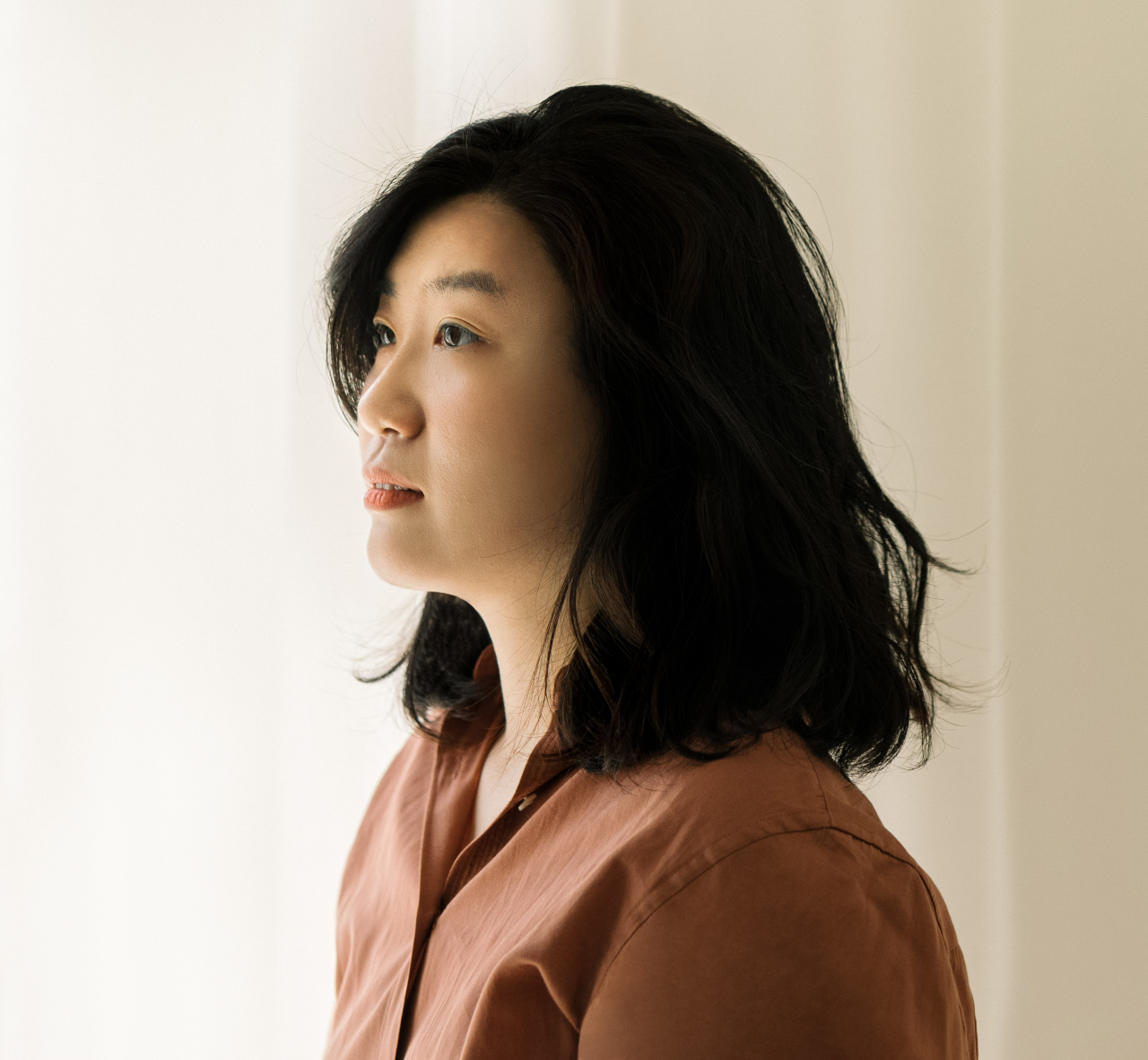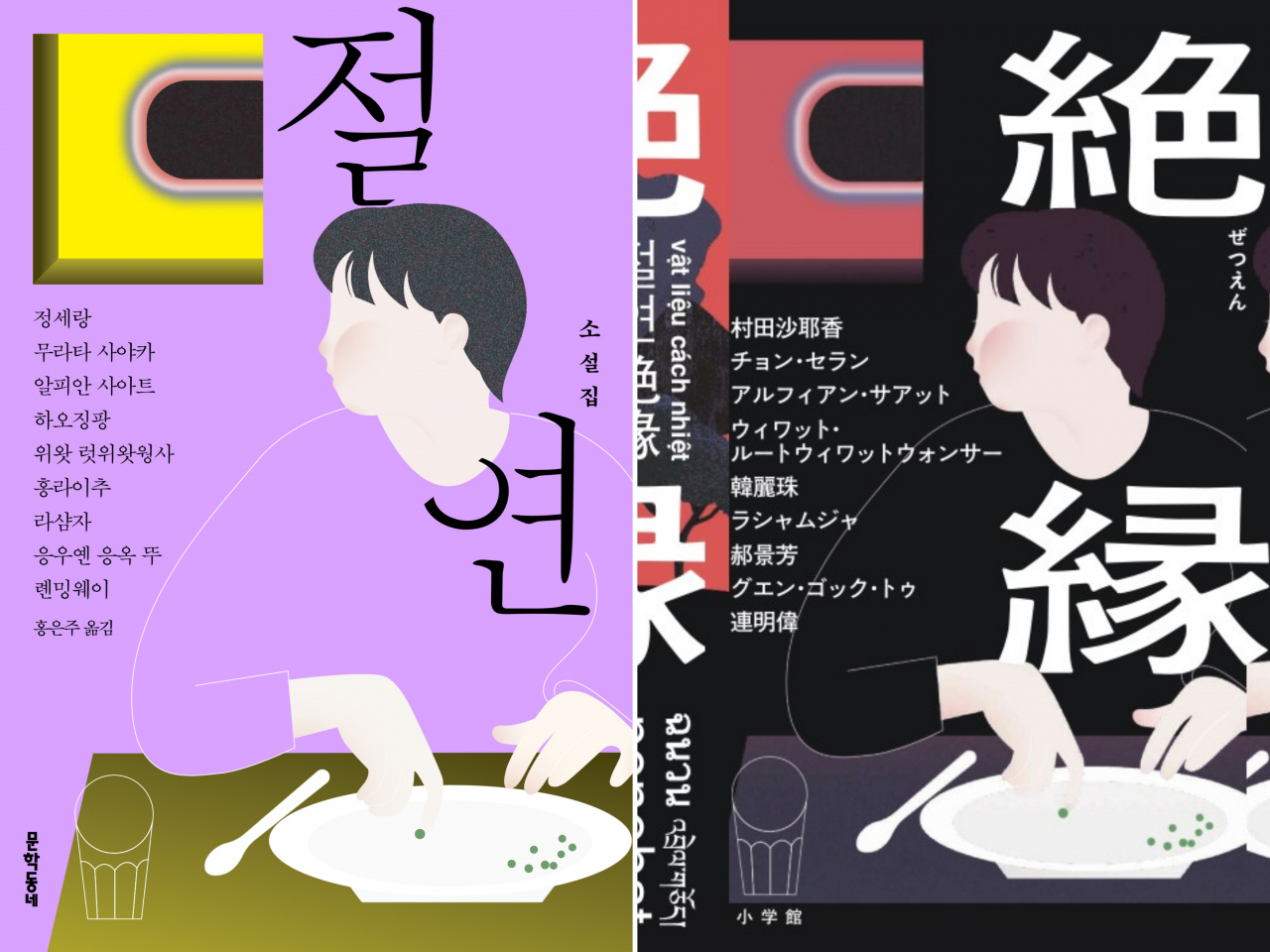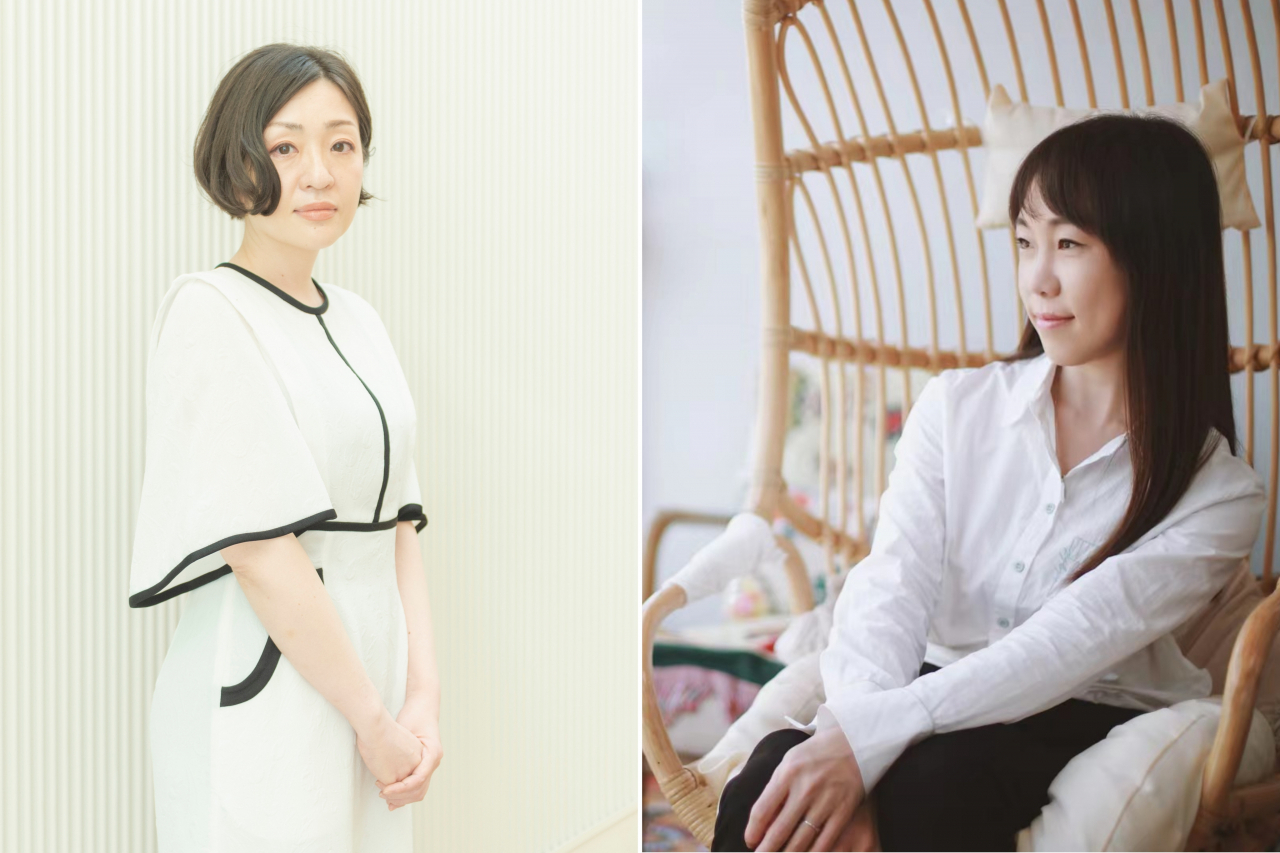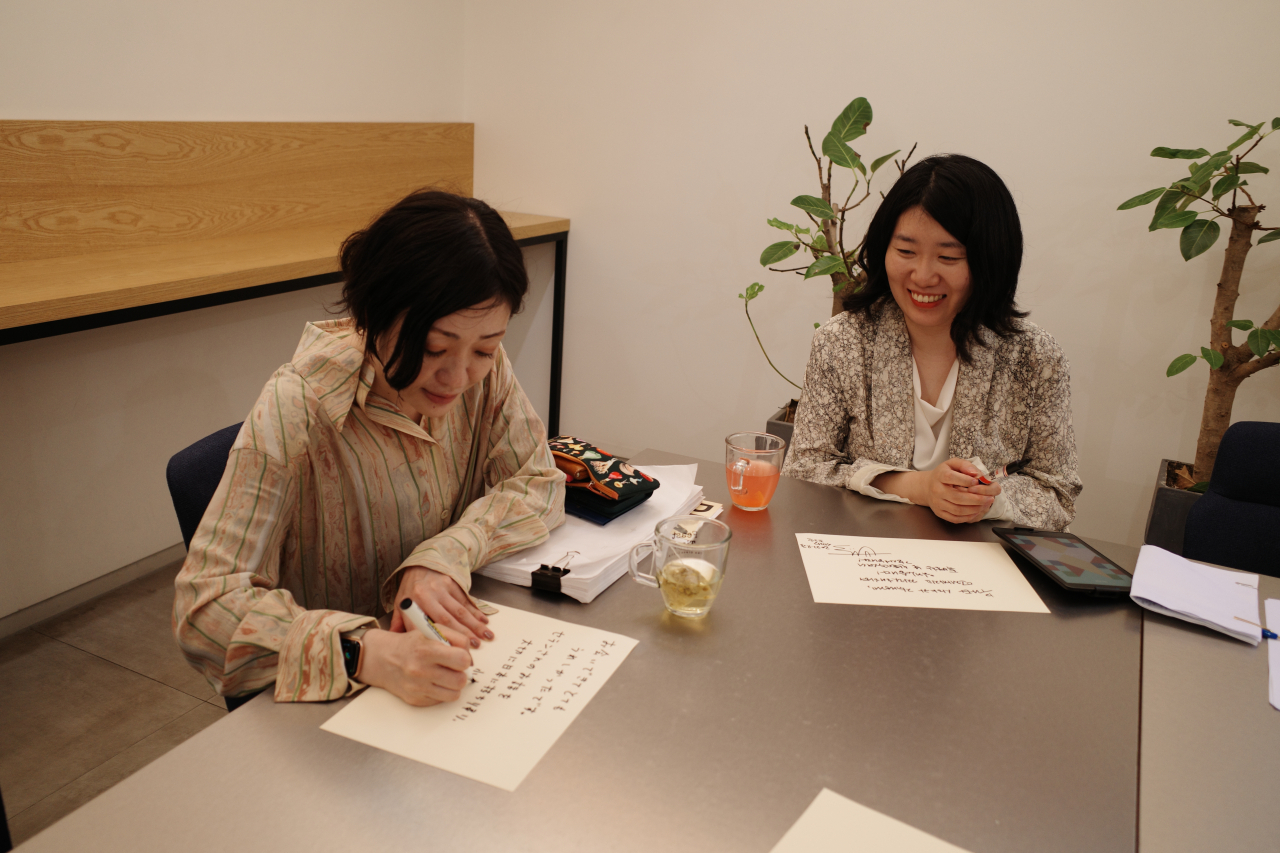‘School Nurse Ahn Eun-young’ author unites writers from 9 Asian cities in new book
Theme of 'disconnection' connects writers across Asia
By Hwang Dong-heePublished : Jan. 4, 2023 - 19:09

In the fall of 2020, Chung Serang, author of the Korean novel “School Nurse Ahn Eun-young” which was the base for the Netflix series “The School Nurse Files,” received a proposal from Japanese publisher Shogakukan.
The editor who was interested in Korean literature suggested that a Korean and Japanese writer each write a part for one novel. Chung, who wanted to expand the literary friendship to more countries in Asia, proposed inviting more authors for this project.
Two years later, nine writers from Korea, Japan, China, Singapore, Thailand, Hong Kong, Tibet, Vietnam and Taiwan published a short stories collection, whose title roughly translates to “Disconnection,” in December.
“I had several book conversations (at international book fairs) with Japanese novelists such as Ryo Asai and Kikuko Tsumura,” Chung told The Korea Herald in a recent interview.
“It doesn’t end as a one-time event, but we continue our friendship and keep track of each other’s books. So how about expanding that friendship a little more? That was the goal of this project.”

In the novel, writers interpreted the keyword "disconnection," or "breaking ties" in Korean, in their own ways such as disconnection among people, from society or across time, through different styles and genres.
Chung said she wanted a theme that would show how relationships have drastically changed over the pandemic. And ironically, it has created a new connection between writers and readers in a time of disconnection.
“We saw a lot of relationships break up -- separated and isolated. Not only with human relations but values and ethics have changed very quickly over only a few years,” said Chung.
The result was beyond what she had imagined.
“At first I was worried that stories might overlap. But I was pleasantly surprised to see that completely different stories came out with a short keyword like this. I fell in love with each and every piece of work,” she said.
Chung wrote the story of Ga-eun who works as a screenwriter. She falls into confusion when she realizes she has different ethics from her old friends. The Korean novelist said the story was inspired by sexual violence cases and how society dealt with such cases.

Acclaimed Japanese novelist Sayaka Murata, who won the prestigious Akutagawa Prize with her novel “Convenience Store Woman,” tells the story of three different families who want to become “nothingness” to leave a chaotic society.
Hugo Award-winning Chinese writer Hao Jingfang's story depicts a “positive city” where people are held in an emotional prison when they have negative thoughts.
Alfian Sa’at from Singapore chronicles the changes in the relationship between a husband and a wife triggered by the husband’s ex-lover.
Wiwat Lertwiwatwongsa from Thailand offers a story revolving around young people after a failed revolution.
Hon Lai-chu from Hong Kong portrays a surveillance society where secret police take control of the city.
LhachamGyal from Tibet tells the story of a young man in despair who returns to his hometown after hearing the news that his first love has died.
The piece by Nguyen Ngoc Tu from Vietnam follows a woman who announces that she is cutting ties with her son on his wedding day.
Lien Ming-wei from Taiwan penned a story on three boys coping with the death of their friend.
After each story, a commentary by the translator was attached to explain the cultural differences or contexts to help readers fully understand the story.

Through the works published in “Disconnection,” we realize that we are connected and share similar Asian spirit in a broader sense of community, said an official at the book's Korean publisher Munhak Dongne.
For example, Wiwat's story was inspired by Korean director Lee Chang-dong’s 2018 drama film “Burning,” which was based on Japanese writer Haruki Murakami’s short story “Barn Burning.”
The nine writers wrote in their own languages and seven Japanese translators translated them into Japanese, and a Korean translator based in Tokyo translated them into Korean, Munhak Dongne said.
The book was published simultaneously in Korea and Japan early last month. The Japanese publisher said publication in other regions is underway.












![[Today’s K-pop] BTS pop-up event to come to Seoul](http://res.heraldm.com/phpwas/restmb_idxmake.php?idx=644&simg=/content/image/2024/04/17/20240417050734_0.jpg&u=)





![[KH Explains] Hyundai's full hybrid edge to pay off amid slow transition to pure EVs](http://res.heraldm.com/phpwas/restmb_idxmake.php?idx=652&simg=/content/image/2024/04/18/20240418050645_0.jpg&u=20240419100350)

![[Today’s K-pop] Zico drops snippet of collaboration with Jennie](http://res.heraldm.com/phpwas/restmb_idxmake.php?idx=642&simg=/content/image/2024/04/18/20240418050702_0.jpg&u=)